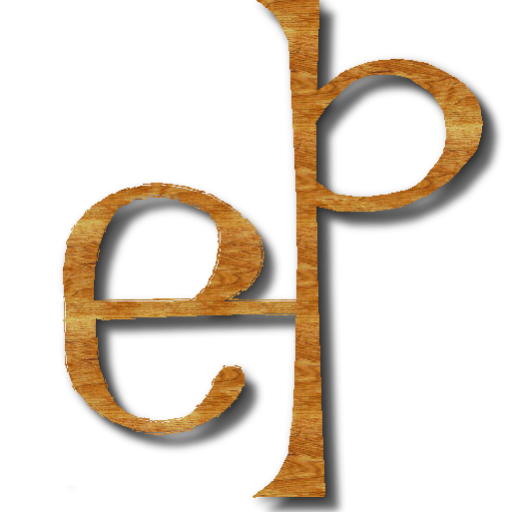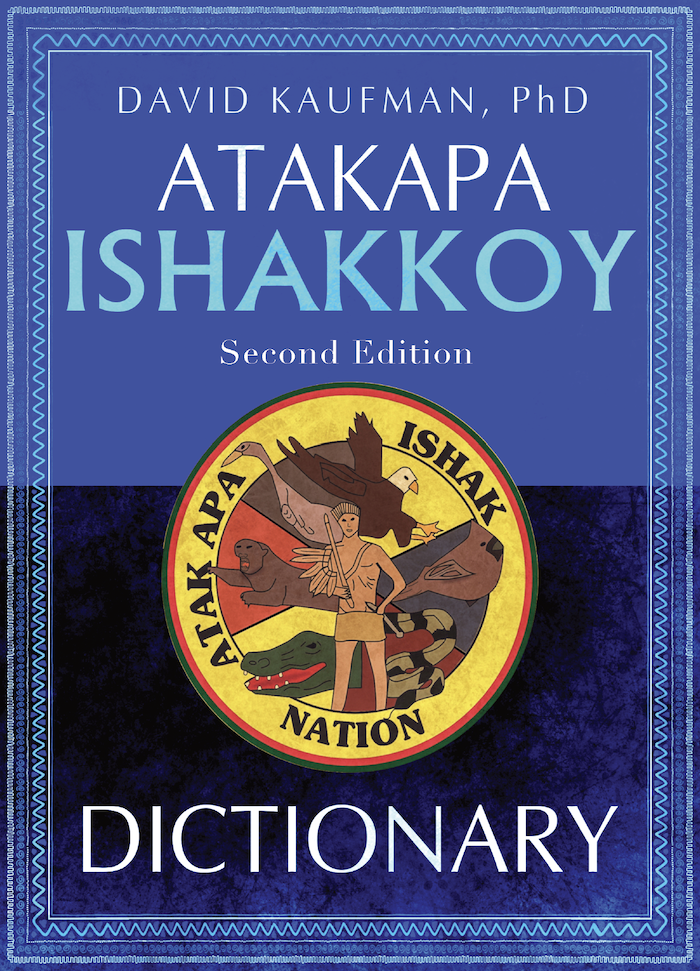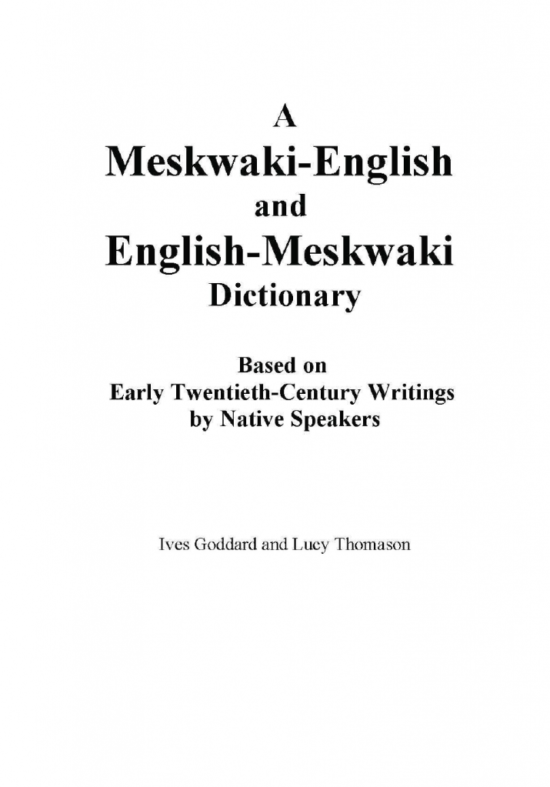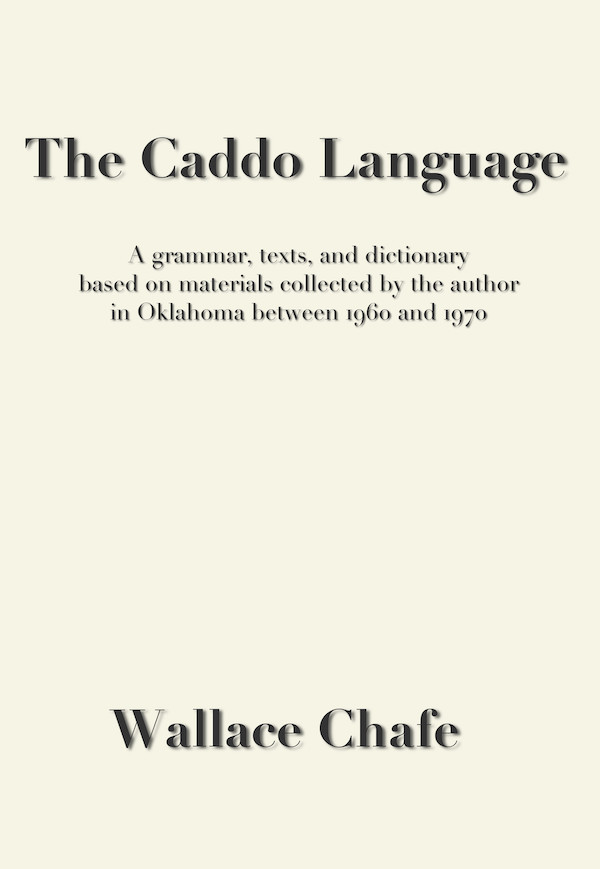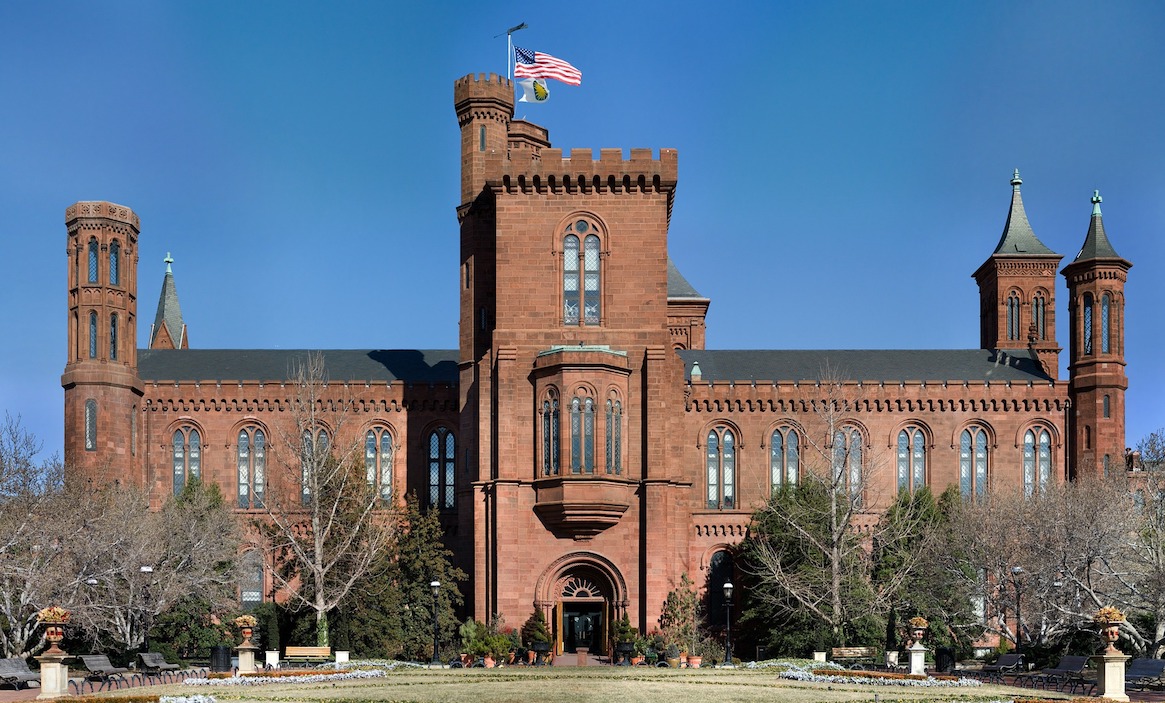
About Us
At Exploration Press we are devoted to inquiry, exploration, and the preservation of knowledge, language, and culture.
Indigenous languages and cultures preserve a rich legacy of human history, creativity, and experience. As our globe becomes increasingly monolithic, this heritage is rapidly being lost forever. Our ambition at Mundart Press is to battle this decline by preserving and revitalizing endangered languages and cultures.
Books
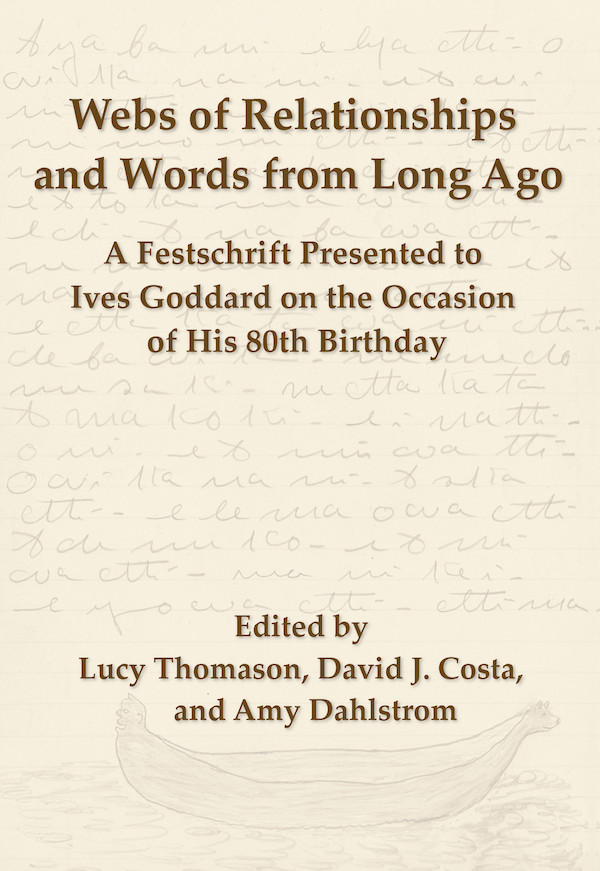
WEBS OF RELATIONSHIPS AND WORDS FROM LONG AGO
“This collection of invited papers honors Ives Goddard, an outstanding figure in the field of the languages of the Americas as well as in historical linguistics and ethnohistory. Goddard is the single most knowledgeable scholar in historical and comparative Algonquian, a field to which he has been contributing since his undergraduate Harvard thesis; he has also carried out extensive fieldwork on Meskwaki and on the Delaware languages Unami and Munsee.”
Amy Dahlstrom – University of Chicago
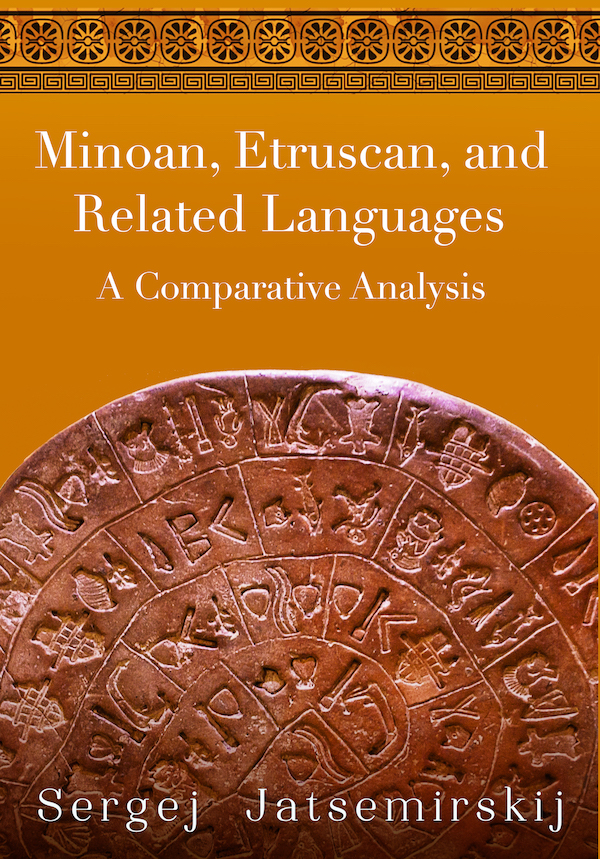
MINOAN, ETRUSCAN, AND RELATED LANGUAGES
“I hope that the text can be widely disseminated among the scholars in this field. If my experience is any indication of the likely response, it will be treasured. . . . Jatsemirskij clearly was set for a productive academic career that realistically could have culminated in finally cracking the code. In the wake of his passing, the book must be made available.”
—Bernard Taylor, PhD, Research Professor, Loma Linda
THE CADDO LANGUAGE
The Caddos once inhabited a vast area that is now included in eastern Texas and parts of Louisiana, Arkansas, and Oklahoma. Their descendants have lived in southwestern Oklahoma since the middle of the nineteenth century. Their language is distantly related to Pawnee, Arikara, Witchita, and Kitsai within the Caddoan language family. Its polysynthetic verb morphology was described in an earlier work by Lynette Melnar. Chafe’s work expands on that description, adding nouns and adjectives, a collection of representative texts, and an English-Caddo dictionary.
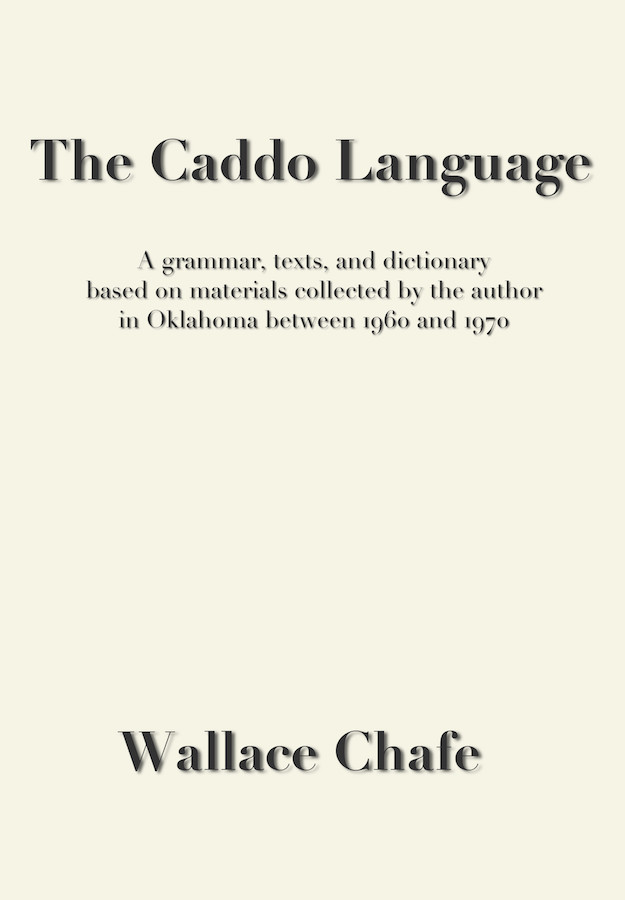
MOBILIAN TRADE LANGUAGE
The Mobilian Trade Language (aka Mobilian Jargon) is a Native American pidgin, primarily based on Muskogean languages, that was spoken in the North American Southeast until the 1950s. For centuries, Mobilian Trade Language served as a lingua franca for various indigenous groups (and later Europeans and Africans) that came together for trade and ritual. As a pidgin, the language is grammatically streamlined and easy to learn. This book is a phrasebook with bidirectional lexicon that can help reawaken this now dormant language by providing a handy lexical reference and common phrases.
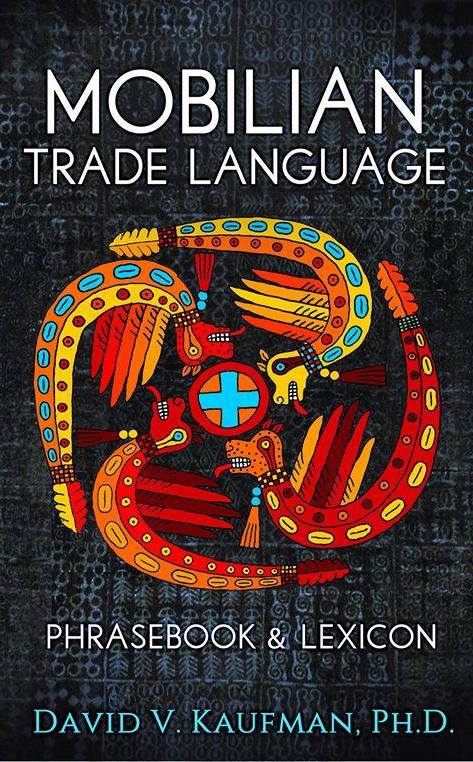
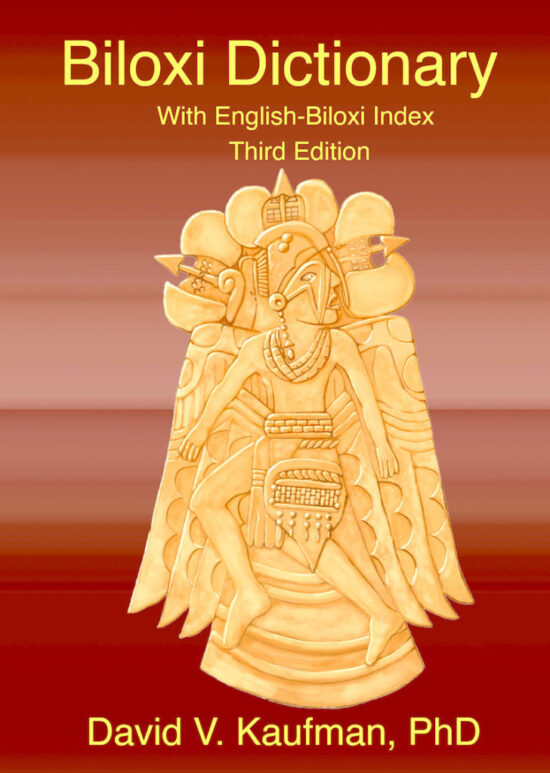
BILOXI DICTIONARY
The Biloxi-English Dictionary serves as a handy reference for Biloxi descendants who want to learn their ancestral language as well as serving as a valuable research tool for linguists, anthropologists, historians, and others interested in Biloxi and Siouan languages in general. Biloxi is a dormant Siouan language once spoken along the Gulf of Mexico in the Southeastern United States. Biloxis merged with the unrelated Tunicas in 1981 to form the Tunica-Biloxi Tribe of Louisiana. The dictionary contains over 2,100 entries with etymological analyses and notations, an English-Biloxi index, comparative data from Siouan and other languages, cross-referencing of entries as well as appendices on numbers, days of the week, flora and fauna, place names, and medicinal plants. For this edition, new entries are included that did not appear in the first two editions, along with new notes reflecting the latest research. In addition, 74 more example phrases and sentences have been added.
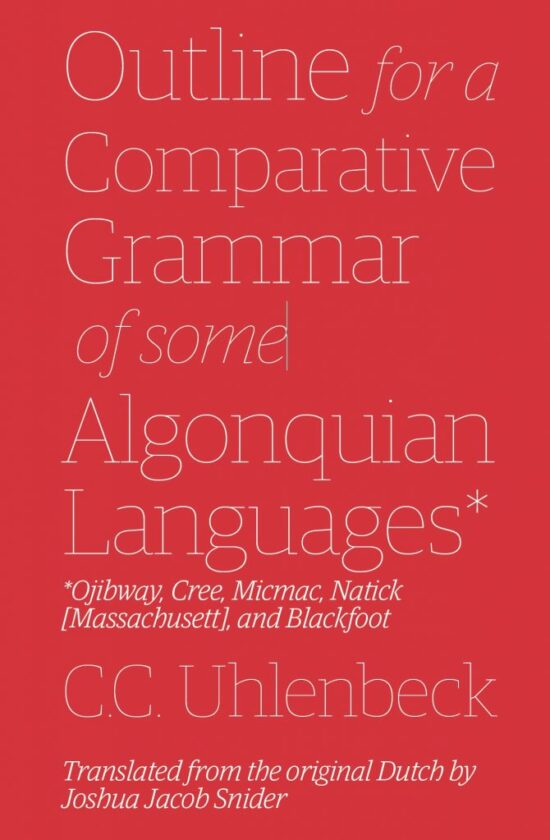
OUTLINE FOR A COMPARATIVE GRAMMAR OF SOME ALGONQUIAN LANGUAGES
A comparative grammar of five Algonquian Native American languages, this book treats most parts of speech and provides a solid introduction to the major important morphological features of this family and its languages. Updated with recent work in the field.
“The real voyage of discovery consists not in seeking new landscapes, but in having new eyes.”
